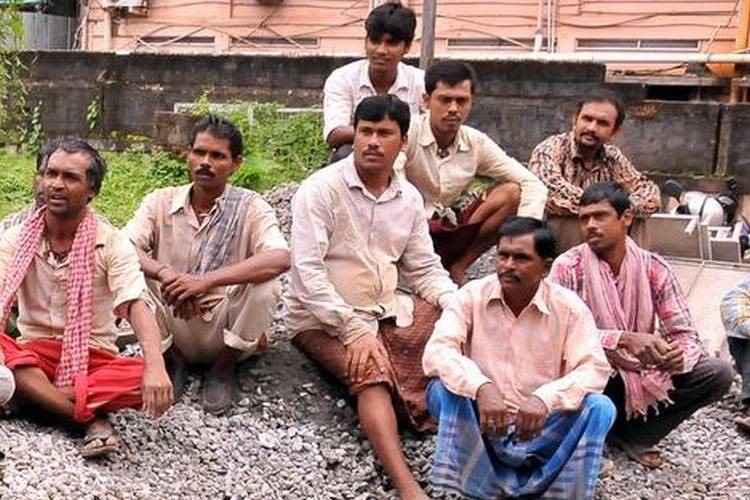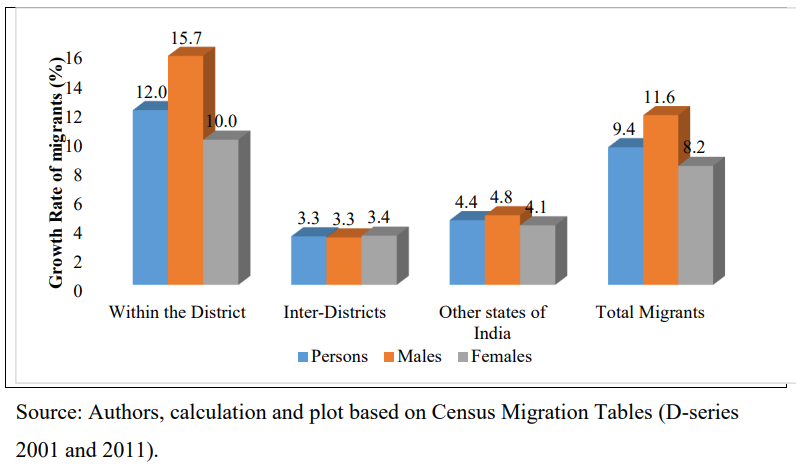
Rajesh Manchi (36) from Champaran district in Bihar was killed by a mob in Malappuram district of Kerala. The attack was triggered by a false charge of theft and a mob denied an opportunity for the migrant worker to present his version. This gruesome incident is the latest in a series of incidents of violence against migrant workers. These acts of violence are inflicted by doubt, hate, intolerance, and unpleasant exchanges of words. Unfortunately, even after identifying interstate migrant workers as guest workers in official parlance, various social and institutional locations in Kerala still exhibit local intolerance to migrant workers.
According to the IMPEX survey in 2019, Kerala has the most migrant-friendly environment among Indian states. The state has implemented targeted policies for migrants, such as Project Roshni, a policy focused on the education of migrant children, which is currently being implemented in all districts of Kerala. Kerala has made commendable effort, as reported by IndiaSpend, in addressing the unique needs of migrant children by offering them care, education, and protection.
Initiatives like the Awas health and accident insurance scheme, the migrant welfare scheme, the Apna Ghar residential scheme, and Anyamalayalam, a language proficiency programme for migrant workers are in place to ensure labour rights, social justice, social cohesion, and confidence building. The migrant-friendly environment in Kerala has attracted a substantial influx of migrants from other states. A study conducted by the Kerala State Planning Board in 2021 estimated the migrant worker population to be between 28 lakh and 34 lakh.
READ I Monsoon delay could impact rural consumption, growth
Intolerance and violence against migrant workers
Despite the government’s efforts to create a migrant-friendly environment in the state, there are instances of violence against migrant workers. A study conducted by the Science and Engineering Research Board Project, led by Mahatma Gandhi University, Kottayam, says the field workers in Pathanamthitta district encountered instances of abusive and angry expressions against migrant workers. A minority of locals expressed resentment concerning the social and economic impact of the influx of migrants on Kerala society, particularly regarding job losses and hygiene factors.
This sentiment was not as prevalent in other parts of Kerala. It is important to note that incidents jeopardiing the dignity and physical security of migrant workers due to local disputes have made it challenging for the law-and-order machinery to diffuse tension. In Payippad, local people and migrant workers had a violent confrontation regarding waste disposal. Probes into the incident pointed to poor waste management by some private entities, and suggested that migrant workers were not involved.
Annual growth patterns of migrants into Kerala

Organised violence by migrant workers has also been reported in various parts of Kerala, such as the violence that occurred around the premises of the KITEX factory in Ernakulam District. The true motivation behind such incidents is yet to be ascertained. These incidents contribute to an environment of mistrust, hate, and social disunity, making it difficult for the local administrative system to implement confidence-building measures and promote social harmony.
There have been numerous incidents of violence against migrant workers that could be attributed to intolerance. Examples include the death of Sithu Bismaji due to medical negligence in Kottayam in 2018, the brutal rape of a 14-year-old migrant from Bengal in Kannur, and cruel punishment by an employer on hotel workers from West Bengal in Ernakulam district. These incidents require immediate attention to restore confidence among migrant workers.
These incidents provide a glimpse into the presence intolerance towards migrant workers in Kerala. This leads to the unequal treatment of migrant workers, hindering their full integration into the social, cultural, and political fabric of Kerala society, which has historically been known for its tolerance towards migrants from around the world.
As a result, migrant workers face exclusion from social healthcare institutions, denial of services, alienating during social interactions, and are subjected to hateful language. These manifestations of hate and intolerance highlight its impact on the well-being and inclusion of migrant communities. Furthermore, mob killings of migrant workers and attempts to justify such acts can be seen as extreme outcomes of the local sentiment. These incidents underscore the deeply rooted issues that need to be addressed in order to promote equality, inclusivity, and respect for all individuals, regardless of their migration status, in Kerala.
Hate culture and violence
Numerous international studies have highlighted that violence against migrant workers is rooted in global hatred. Noteworthy works such as “Mean Streets: Migration, Xenophobia and Informality in South Africa” (2015), and “Migrant Entrepreneurship Collective Violence and Xenophobia in South Africa” (2014) shed light on xenophobia and migration issues in South Africa.
A number of studies by organisations such as the ILO, UNODC, IOM, Amnesty International, and Human Rights Watch provide insights into the complex relationship between xenophobia and violence against migrant workers across different regions and contexts.
Conclusion and recommendations
Based on extensive studies that highlight the causes of xenophobia against migrant workers worldwide and their corresponding solutions, it is crucial to engage in a discourse on policy formulation to address the challenges faced by migrant workers in Kerala. In light of the discussions above, the following strategies are recommended in order of priority:
- Customise the activities offered by social platforms provided by initiatives like the Roshni scheme, Changati scheme, and Anyamalayalam to foster harmony between local communities.
- Institute a common assembly of migrant workers, similar to a grama sabha, to discuss, document, and plan various activities aimed at building confidence among communities.
- Make necessary legal and policy framework adjustments to empower grassroots LSG organisations to have direct operational control over activities related to social justice, rights, and dignity of migrant workers.
- Implement awareness programmes at the school level to promote understanding among native Malayali residents about creating a welcoming environment and providing decent social and living conditions for migrant workers seeking employment.
- Establish dedicated helpdesks for migrant workers in social and healthcare institutions to provide assistance and support.
- Conduct legal awareness campaigns on forms of intolerance and ways to combat them, targeting government officials, elected representatives, community workers, teachers, researchers, and business people.
- Establish district-level special workforce to ensure the welfare, social security, and healthcare of migrant workers under government schemes, allocating specific funds for this purpose. States of origin of workers may also participate at all levels of implementation.
- Make effective use of engagement by tapping into the social skills of experienced and committed migrant workers to bridge the relative disadvantage of workers with society and administration.
- Ensure regular visits by panchayath functionaries to the residences and workplaces of migrant workers, providing support and addressing any concerns related to discrimination, health hazards, local forms of xenophobic tendencies, and so on.
- Promote social innovation to foster collaborative business and entrepreneurship between migrants and the people of Kerala.
- Conduct broad-based experiments in social cohesion by involving the skills of migrant women and local women, as demonstrated in the case of Kanchikod, Palakkad district, under the aegis of the literacy mission.
It is important to address the challenges faced by migrant workers in Kerala and formulate policies that promote equality and inclusivity. By fostering harmony among communities, empowering grassroots organisations, raising awareness, providing support and assistance, and promoting social innovation, Kerala can work towards creating a more welcoming and inclusive environment for migrant workers. These efforts will contribute to the overall well-being, social justice, and dignity of migrant communities and help build a society that values and respects individuals regardless of their migration status.
(Dr Bijulal MV and Navas M Khadar are coordinators at the Centre for Migration Policy and Inclusive Governance, Mahatma Gandhi University, Kottayam, Kerala.)

